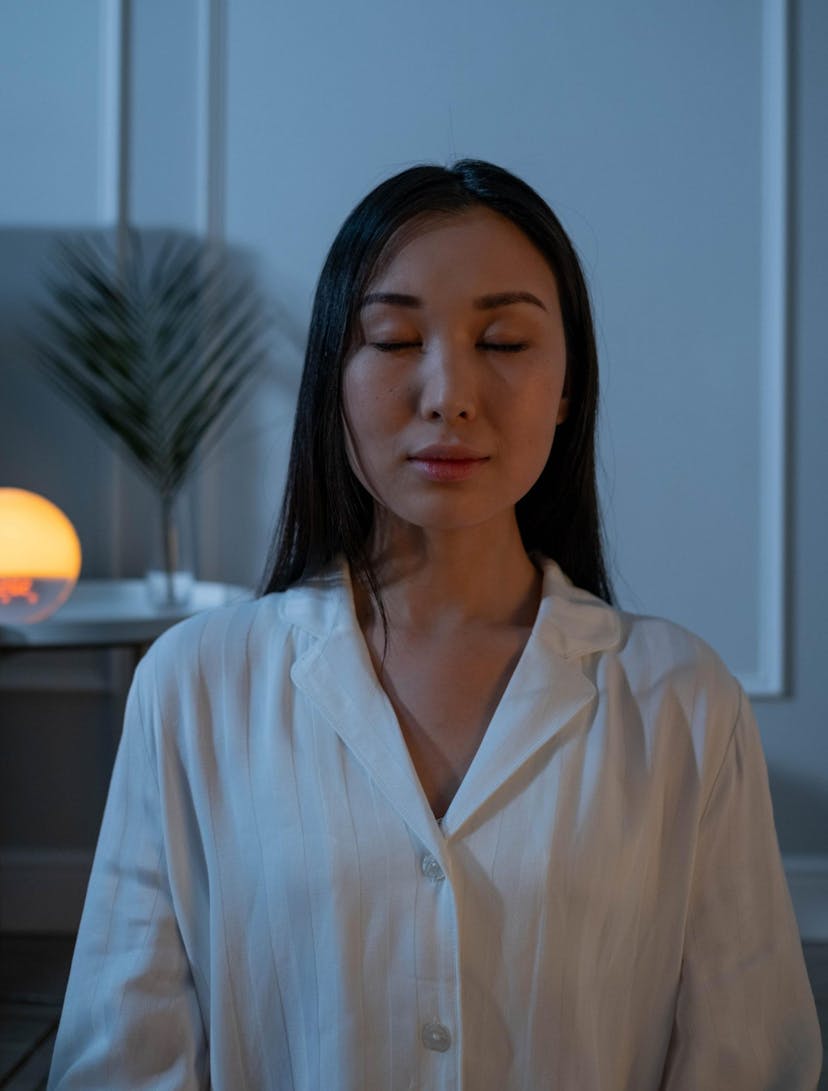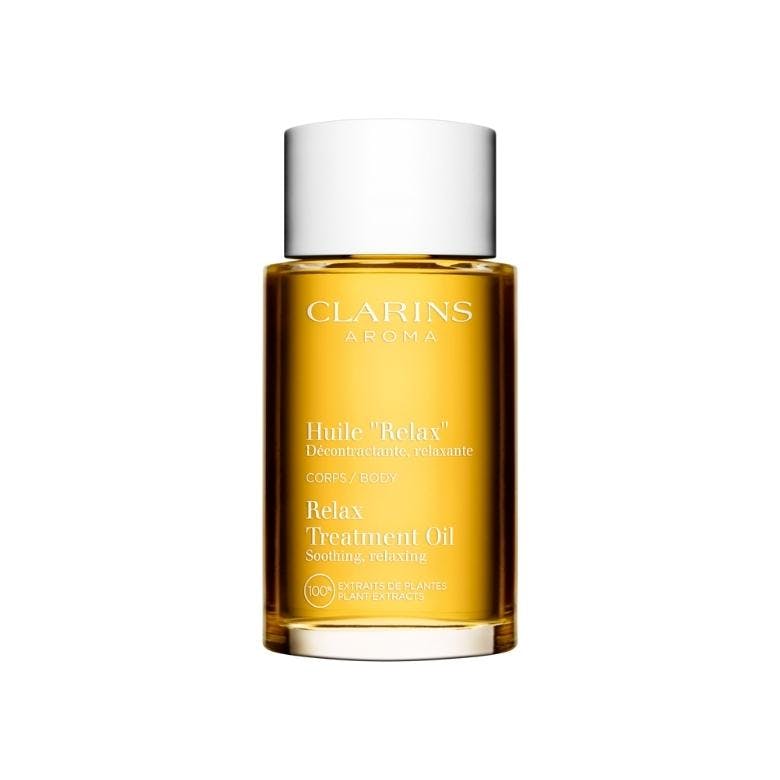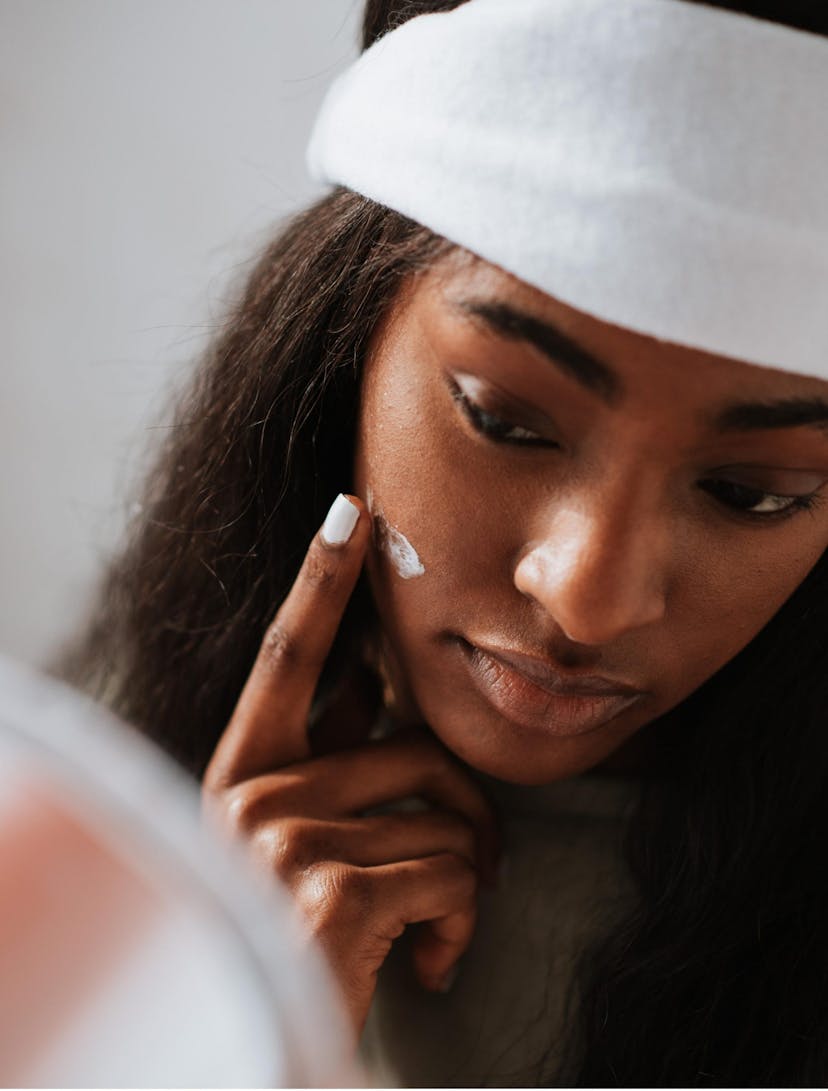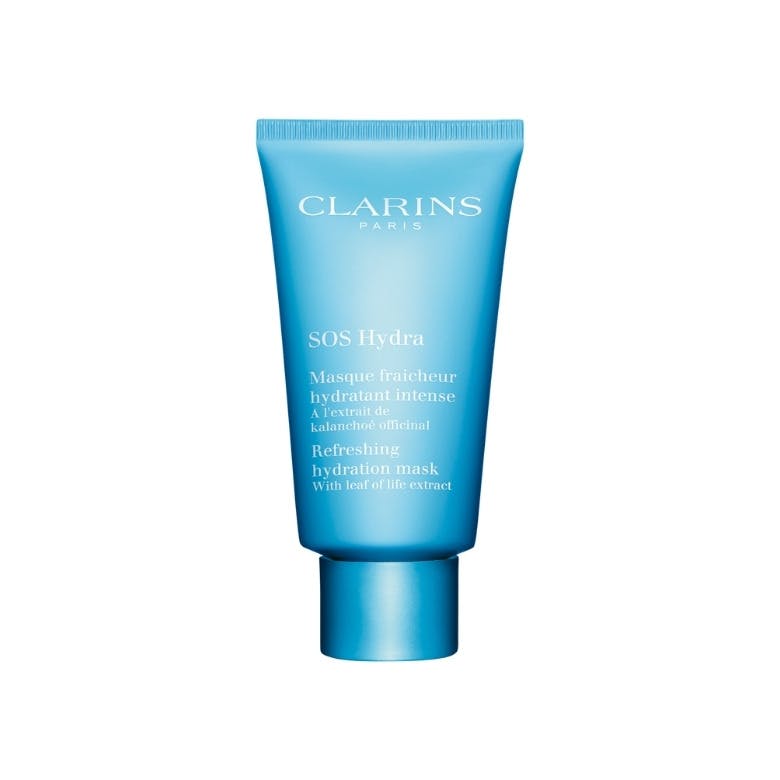Winding Down Time: Experts Share Adult Night Routine Tips for Better Sleep
10 minutes read
If you’re wondering how to improving your winding down time, you’re not alone. According to research, over half of UK adults admit they don’t get enough sleep – and a whopping 67% of the adult population suffers from disrupted sleep. Nearly a quarter manage no more than five hours a night.
But sometimes, it’s just a case of looking at your nightly routine. Think about last night for example – did it take you some time to switch off your mind completely after an endless scroll on social media? Or are you desperate for sleep but can’t snooze because racing thoughts go extra wild at night?
We get you. While sleep is a normal and essential part of our routine, everyone’s relationship with sleep differs. Some sleep like a baby, while others struggle immensely.
“There are a variety of factors that can impact sleep. Especially in the summer, influences like light exposure late in the day, breaks from exercise routines, changes in eating habits and inconsistent bed and wake times can negatively impact sleep quality,” Erin Koffel, PhD, Senior Director of Research and Scientific Affairs at the National Sleep Foundation, tells Beauty Daily.
The good news is that there are things you can do to boost your sleep health.
Beauty Daily speaks to a range of leading sleep experts and shares science-backed adult night routines to quiet your mind before bedtime.

Are night time routines important?
Absolutely. Just as they are essential for children, adult bedtime routines are as crucial.
According to Koffel, straying too far from the recommended amount of sleep for your age could lead to various health issues.
“Short-changing sleep has been associated with weight gain, reduced immunity, high blood pressure and depression. The adverse effects of too little or too much sleep aren’t just physical – they can also interfere with your mental health.
Your outlook, mood, and attention span all depend on getting the right amount of sleep and, without it, your job performance (not to mention your personal life) can suffer,” she explains.
1. Nutrition: Choose sleep-boosting foods
Believe it or not, when and what you have for dinner dramatically determines whether you’re off to a night of good sleep.
Remember tryptophan-rich foods when preparing dinner meals.
Marilia Chamon, founder of Gutfulness Nutrition, Registered Nutritionist & Gut Health Specialist, shares that consuming tryptophan-rich food at night is key to deep REM sleep.
“Good sources of tryptophan include fish, eggs, rice, oats, chickpeas, soybeans, tofu, chia, sesame and pumpkin seeds.”
Eat more ‘anti-insomnia’ foods.
Be wary of any vitamin and mineral deficiencies as Chamon says, it can impact sleep: “For example, deficiency in B vitamins, especially B6 and B12, can result in insomnia.”
So, adding more B6 and B12 to your diet will combat sleepless nights.
“Include salmon, eggs, potatoes (with the skin on), bananas, hazelnuts, walnuts, and beans. Magnesium, a mineral essential for nerve and brain function, is equally important. Foods rich in magnesium include leafy green vegetables, avocado, banana, nuts, seeds, legumes, and whole grains.”
The National Sleep Foundation’s advice is to finish eating meals two to three hours before bedtime.
Choose your late-night snacks wisely
If you are looking for a late-night snack – whether for a weekend binge-watching a new Netflix series, catching a red-eye flight, or finishing a presentation or work deadline – having a healthy snack handy won’t cost you sleep.
Have air-popped popcorn, fresh fruit or crunchy vegetables for snacks or dessert instead of chips and crackers. Here are some ideas you can munch on as recommended by Chamon.
“Handful of nuts and seeds, sugar-free yoghurt, hummus with a whole grain seeded bread or cracker, hard-boiled eggs with guacamole, edamame beans,” For nighttime tea, she recommends “chamomile, lemon balm, lavender, tulsi.”
Think of ways you can add this to your daily dinner menu. We’ve got some nutritionist-approved healthy ingredients and recipes here to get you started.

2. Mood: Create a sleep-friendly environment
“Put your devices away an hour before bed and sleep in a quiet, cool, and dark environment. Then, use a consistent night routine in the evening so you can get the sleep you need. Try different things to find out what works best for you, like a warm shower or bath, tea, listening to soft music or reading a book,” Koffel suggests.
Let essential oils lull you to sleep
If you haven’t discovered or used for your benefit the power of essential oils, you’re missing out. Essential oils are versatile and a fantastic way to aid a sound sleep as they are so easy to incorporate into a night routine.
Oils like vetivert, chamomile and, of course, lavender have been used for many years and are renowned for their sedative properties,” says Anne Murray, Registered Aromatherapist and Holistic Therapist with over 25 years of experience.
But how do they work? They can be absorbed through the skin if used in a bath, shower, or body oil, but simply inhaling them does the work.
Murray says essential oils can also trigger intense memory recall, so choosing an oil or blend that you associate with positive, calming thoughts or events will also help you sleep.
She shares the top three essential oils you can incorporate into your night routine.
“Vetivert has a deep, woody aroma that calms and grounds our emotions, so it is beneficial if anxiety prevents sleep.
Lavender is many people’s first choice to relieve stress – mental and physical – and allow the mind to slow down. It can also help ease aches and pains if they stop the body from relaxing. Chamomile is safe and comforting, bringing a sense of security.”

Beauty Daily Pro Tip: Charlotte Hollands, Clarins Treatment Training Manager, recommends applying Chamomile infused Relax Treatment Oil to your wrists and taking three deep breaths, in through your nose and out through your mouth, to relax your mind and nervous system, to prepare you for sleep.
Pre-slumber, “Spritz your bedroom and pillow with a ‘sleepy pillow mist’ of Eau Ressourcante, containing basil and chamomile to create a relaxing ambience,” suggests Hollands.
Explore the Rebalancing Range
Read next: Mood-Boosting Beauty & Meditative Rituals

If you’re consistently finding it difficult to sleep, it might be time to eliminate one or all of the following out of your daily routine:
1. Caffeine
“Your latte’s stimulant effects can keep you up to 12 hours after you drink coffee,” says Chamon. Try to avoid dark chocolate or a hot chocolate drink before bed. You’ll be hyped with caffeine and sugar.
2. Sugar
We’re only humans, and pastries and heavy desserts can have a negative impact on sleep. So keep the baked goodies for the morning and avoid stodgy puddings after dinner.
Chamon says: “Refined carbohydrates are quickly broken down into sugar and may promote a sudden drop in blood sugar levels in the middle of the night, which will consequently wake you up.” The exact opposite of what you wanted to achieve.
3. Alcohol
It might be a downer for some, but Chamon says: “It can disrupt your circadian rhythm (sleep/wake cycle) as it inhibits the release of the sleep hormone melatonin and raises stress hormone cortisol levels.”
In addition, avoid eating fatty and spicy foods, especially if you experience symptoms of acid reflux. It will disrupt your sleep.
3. Regimen: Establish A Relaxing Nighttime Skincare Routine
Create a nighttime skincare routine you look forward to at the end of the day. Whether that’s an elaborate nighttime beauty ritual, a lavish, warm bubble bath or just a quick 10-min shower, our lives may look different, and our approaches may vary, but the goal here is to carve time to wind down and relax and squeeze in what works for you.
It’s also important to remember that the highest level of skin regeneration takes place during our nightly slumber. 1am is the optimum time for skin cell regeneration, which also coincides with the time that we tend to be in our deepest sleep. Therefore, it’s crucial that we’re giving our skin that extra TLC before bedtime.
Hollands shares some facial massages you can easily incorporate into your nightly rituals.
Eye Mask Massage
“Once the skin is freshly cleansed and toned, apply Total Eye Hydrate with light presses to the brow bone and orbital bone, working from inside to outside, to drain puffiness.
Repeat this sequence with small light fingertip circles above and below the eyes finishing at temples to help relax and soothe tired eyes.”
Face Mask Massage

“Mix SOS Hydra Refreshing Hydration Mask with two pumps of Double Serum in your hands for the ultimate radiance and hydration boosting treat. Apply evenly to the face, neck and décolleté with pressing movements.
To aid drainage, begin circling with fingertips from the chin towards the ears. Once you reach the ears, start back at the chin, and sweep towards the ears.
Repeat these two movements from the corners of the mouth to the ears to relax tense muscles in the jaw.
Repeat these two movements from the nostrils to the ears, working under the cheekbones to relieve pressure.
To release stress and tension from the forehead, sweep fingertips from the middle towards the temples x 3, finishing with a rotation at the temples.”
Follow with a hydrating night cream, such as Clarins Hydra-Essentiel [HA²] Night Cream, £40. Or for a serious hit of anti-aging magic, try Clarins Super Restorative Night Cream, £81.
Read next: Does Lymphatic Drainage Massage Actually Work? Experts Weigh In
Professional Spa Massage
If you are looking for an ultimate relaxing escape for the mind, skin, and body and don’t mind splurging a bit, Hollands recommends booking The Beauty Sleep treatment. “This spa treatment ensures you feel rested and revived as if you have had a good night’s sleep. You will feel like you are floating on a cloud with a warm water pillow under your feet, to promote a feeling of weightlessness whilst listening to specially designed music to aid deep restorative sleep.”
It is also an ideal treatment for the sleep-deprived expecting and new mums or those with insomnia.
“Your therapist will create a multi-sensory experience using colour therapy to calm the nervous system, incorporating the sleep-inducing scent of Relax Treatment Oil to relax the mind and warm the muscles, as well as soothing massage movements on specific pressure points to relieve stress and anxiety as well as resetting your body clock.”
She adds: “Upon waking, your therapist will explain key lifestyle tips as well as a personalised treatment plan and home care routine to ‘spring clean your sleep routine’ and ensure the results of your treatment are long-lasting.”
4. Consistency
Be consistent. Sleep experts recommend sleeping and waking up simultaneously every day, including at weekends. According to the Sleep Foundation, keeping a regular sleep schedule will help reset the circadian rhythm. Circadian rhythm is vital to managing the balance between sleep and wakefulness, helping us be alert or drowsy at the appropriate time. Therefore, it’s important for your body to have a regular sleeping schedule. Similar logic goes for the daytime routine.
A recent poll by the National Sleep Foundation found that people who fall short on daily activities are the ones succumbing to the poor sleep department. So, strengthening your daytime routine guarantees surprisingly good slumber results.
The poll revealed that half of the participants say they aren’t exposed to the recommended bright light levels when indoors in the morning and afternoon.
Four in 10 eat meals at varying times, making it more difficult for their bodies to regulate their sleep/wake. Over one-third fall short of the Centers for Disease Control and Prevention’s recommendations for moderate or vigorous activity.
Koffel shares a few tips you can do during the daytime:
1. Get a healthy amount of exposure to bright light during the day.
“Natural light or equivalent brightness best fits with outdoor summer plans.”
2. Exercise regularly for a deeper sleep.
“Aim for 30 minutes a day, five days a week.”
3. Eat your meals at consistent times.
“Regular meals can help maintain a healthy sleep/wake cycle.”
Need some morning routine tips? Here’s a great read about Mastering Mindfulness: Morning Habits For Re-Setting Your Mind.
Sign up for our newsletter
We will keep you in the loop for special offers, exclusive gifts and product news.

